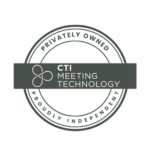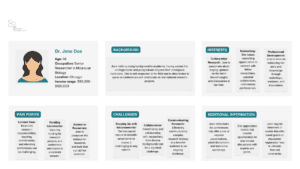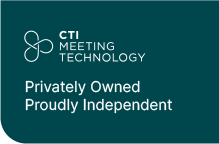You might be planning your best event ever. Interesting topics, entertaining sessions, groundbreaking innovations, and expert keynote speakers. But sadly, no one will know about it unless you learn how to effectively promote it. A key part of an event’s success relies on reaching the right audience and effectively communicating the benefits of attending.
Imagine you are a film director. You need a strategy to get the best actors and producers for your movie, find effective ways to promote it, and encourage people to watch it. With so many movies coming out and available for streaming, it’s not easy to choose. As a film director, you want to give your audience valid reasons to go watch your movie. Same goes for scientific events. Organizers need to come up with marketing strategies to get the best speakers and sponsors that will make your event valuable, and then communicate this effectively to your target audience.
Event marketing is very broad. There are hundreds of tactics and strategies organizers can implement to promote and enhance the event. Organizers have to develop a well-detailed event marketing plan including the tactics that work the best for them, and designate a team to implement it. And there are economic constraints as well. Who wouldn’t love an unlimited budget for their events? Unfortunately, this is not realistic, so you have to be aware of the total budget available and allocate enough money to the more relevant marketing tactics for your scientific event.
An effective event marketing plan is the key to attracting attendees, sponsors, and speakers, making your conference a major success. Keep reading to discover how to develop an effective marketing strategy for your next scientific event.
Define Your Event’s Purpose & USP
The first step is to define your event’s theme and objectives. Just like movie directors define the genre of their movie and the topics discussed to appeal to the right audience. The better you communicate what your event is about, the easier you will reach your target audience. Then, highlight your event’s USP, that is, its unique selling proposition. This is a widely used term in marketing to explain why individuals should buy your product or service and not your competitors. In the scientific community, there are thousands of meetings taking place every year. Think about it, your audience, speakers, and sponsors are probably the same people as your competitors. They will get invited to hundreds – or even thousands – of events every year. So why should they attend yours?
Highlight what you do best. Maybe a well-known industry speaker is giving a talk at your conference. Or you’re hosting an interesting panel discussion about a new late-breaking research. Or perhaps the technology used during your event is what sets you apart.
Whatever it is, make sure you use it to your advantage and communicate it clearly in every event promotion.
Define also the goals you want to achieve with your event. Do you want to attract valuable sponsors? Increase ticket sales compared to your last event? Or maybe you want to get a certain revenue number?
Ensure that these goals are SMART – specific, measurable, achievable, relevant, and time-bound. There’s no benefit in setting far-fetched objectives that you will never reach. Or coming up with general goals that are difficult to measure. Here’s an example of a SMART goal:
“Increasing the number of attendees to the event from 150 to 300 in the next two months.”
This goal specifically refers to the number of attendees, which is relevant to the overall success of your event. It’s easy to measure, as you probably send out registration links and can quickly check how many new attendees you get. The deadline is in two months. It’s not the same to get 1,000 movie viewers in a day than in a year. 1,000 views in a day is a pretty big achievement, but 1,000 during a year is not an impressive number. The same goes for your event! Just remember that it’s essential to set a deadline, but also make sure it’s feasible to not get discouraged.
Know Your Audience
Defining your target audience will help you understand what they are expecting from you and tailor the event more to their preferences. If you have already hosted similar events in the past, analyze your attendees to come up with key demographic and psychographic traits.
A great marketing tool to help you build your target audience is the buyer persona. It consists of gathering all the common traits you have and creating a fictional personal profile including their background, interests, pain points, challenges, and any other points that might be helpful for you. The more detailed, the better! Let’s see an example:
This step is not only important to understand your audience. Organizers can also conduct a similar analysis of sponsors and speakers to ensure you have the right people at your conference. Additionally, understanding what sponsors and speakers are expecting from you is paramount to communicating with them.
Research similar events by other organizations as well. Big chances are that a big part of their attendees can also become yours!
Create Compelling Content
Now it’s time to promote your event to sponsors, speakers, and registrants. A few posts on social media and an email campaign won’t do it anymore. Ideally, create a content calendar and publish regular event-related content.
First of all, you might want to create an event website. This will be a space dedicated to posting all news and updates about the upcoming event, separate from your organization’s website. You can create a separate website for the conference, or a landing page within your normal website. It’s up to you! Just don’t forget to include the link to this page on every post and promotion you do for your event. All your marketing efforts should bring traffic to the event website and overall, bring more registrations.
Creating a buyer persona will probably give you information about their preferred social media platforms and communication methods. This will help you decide which channels you have to focus on and which kind of content to share.
In general, a variety of formats and repurposing your existing content is the way to go! Include blog articles, and video content in your plan, and highlight key conference topics and speakers to build anticipation. But do not overdo it! There’s nothing worse than being bombarded with endless emails and posts. Take care of the messaging as well. You don’t want to make your posts sound like a promotion, but rather highlight the benefits the participants will get from attending it.
Creating content is great, but there are already thousands of articles being posted every day. You need to leverage keywords and implement SEO tactics to ensure your audience will find your event in search engines. Read about some SEO best practices here.
You can offer early-bird discounts for attendees who register before a set date. Creating FOMO is one of the most successful strategies to make people register, especially if the majority of your target audience is millennials. To make it even easier, make sure you include powerful CTA messages linking to registration in every post or email you send.
Utilize Multi-Channel Marketing
Analyze which channels your audience prefers to communicate. You can even go a step further and segment your audience to offer more tailored messages to each segment. When it comes to social media, it’s easy to see which platform is the most used by your target audience and focus on this one. But you shouldn’t put all your eggs in one basket! Try different platforms and content formats to see what works best.
The same goes for email marketing and other type of communication. While you can get valuable preference information from past email campaigns, no event is the same! Research, try new things, and get data to understand your audience better.
Consider conducting paid ads and campaigns to enhance your event’s reach and popularity. While these campaigns can be a great shortcut to appear in your target’s feed, you should take into account the budget allocated to event marketing efforts and decide whether these paid campaigns are worth it.
Other ways in which you can promote your event are by creating event-related landing pages on your website. This will not only redirect normal visitors to your website to your event content, but it’s also easier to pinpoint which of these registrants are coming from your website. Furthermore, you can repurpose your event content and create hype about it by hosting webinars.
Consider onsite marketing tactics as well. If your event is hybrid or onsite, you can leverage the event venue to promote your organization and upcoming events. Place banners, corporate logos and colors, contact information, and more all throughout the event site. The more opportunities you get to promote your work and organization, the better!
Collaborate With Partners & Sponsors
Don’t be shy to ask for collaborations! Work closely with sponsors to identify cross-promotional opportunities. It can help you reach a wider audience and establish your organization as a reliable source.
Some ideas are hosting webinars with partners or promoting each other’s events on social media. Synergies can be very powerful, so don’t forget to include them in your marketing plan!
Wrapping Up…
All in all, an effective marketing strategy will bring more relevant sponsors and speakers to your event, making it a more enjoyable experience for your attendees. This will also translate into increased revenue for your organization. Knowing how to effectively promote your event will also translate into more registrants, and will give your organization more visibility.
Allocate enough time and resources to design a detailed event marketing plan, extending from pre-registration to post-event feedback. A big part of marketing is trial and error – without forgetting research – so don’t be afraid to try out new strategies and tactics!
Event technology can be one of the unique selling points of your event. Discover how our software can help you achieve your event marketing efforts by clicking here.






